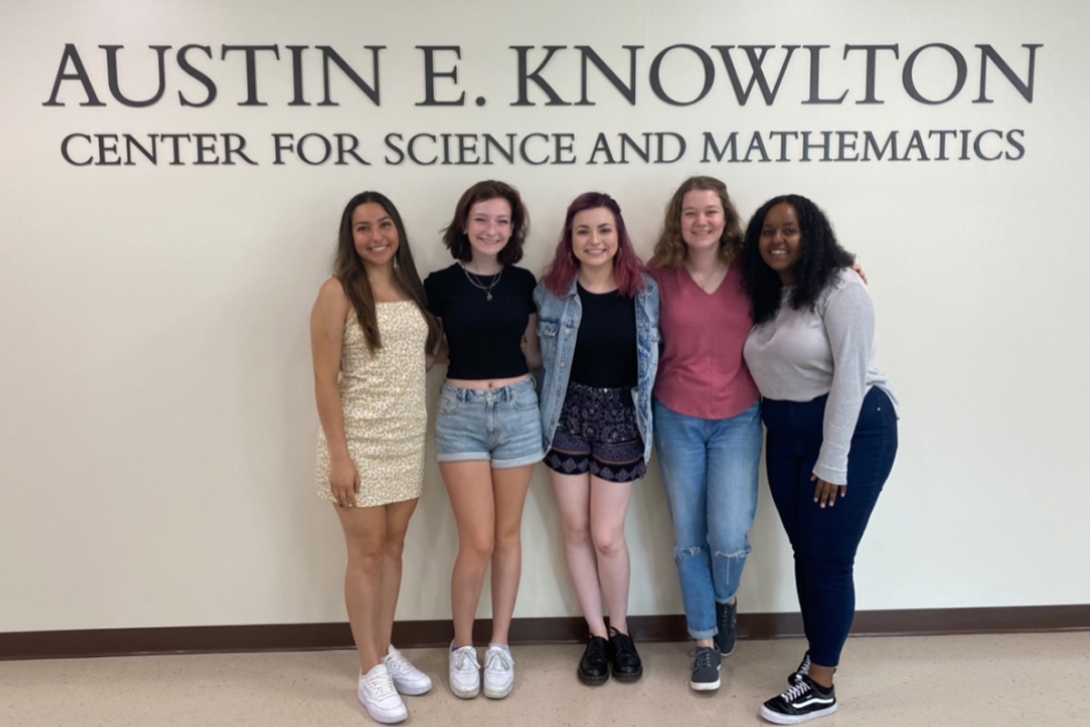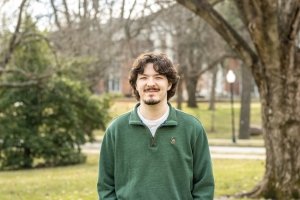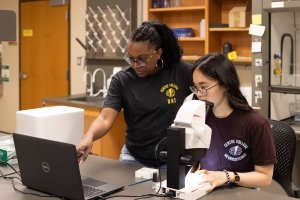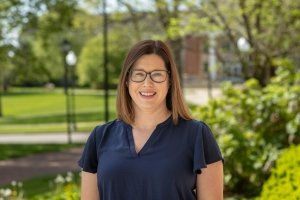Collaborative summer research examines, promotes STEM resources at Centre

Throughout this summer, a group of five Centre students have been hard at work evaluating the Science, Technology, Engineering and Mathematics (STEM) programs at the College to find ways in which they can help their classmates solidify a foundational knowledge for common pre-requisite classes, such as math, physics and chemistry.
“Our hope and goal is that the resources we create and compile will serve to support Centre students in intro-level STEM courses, particularly those who may be under-confident in those classrooms for whatever reason,” said Abby Wheelis ’23 (Marietta, Georgia).
“In addition, we are also creating a mentorship program that will foster academic success for Centre STEM students as well as support the pursuit of their academic career aspirations,” added Natalie Cha Olguin ’22 (Shelbyville, Kentucky).
Their work has included collaborating with Assistant Professor of Chemistry Kristen Fulfer, Associate Professor of Education Sarah Murray and Associate Professor of Mathematics Ellen Swanson, along with interviewing alumni about their experience in the STEM programs at Centre. The student researchers have earned valuable experience in preparing data analysis, conducting interviews, creating educational materials and executing projects based on their acquired knowledge.
“I had no prior experience analyzing data, collecting surveys or conducting interviews, but this summer research project gave me a glimpse into the world of data analysis. I also gained a better understanding of data-driven decision-making, which is a skill in high demand in today’s workplace,” said Sharon Mega ’24 (Addis Ababa, Ethiopia), a mathematics and data science major.
Along with developing these skills, all of the researchers emphasized the importance of the work they are doing that will help many within the Centre community.
“Many students who enter their first college-level STEM class feel uncertain or underprepared. This includes women, first-generation students, students from low-resourced high schools and students from underrepresented minority groups. These either real or perceived deficits make students feel that they are further behind those vocal students who are often the most confident in the classroom,” concluded Katie Barnes ’22 (Salvisa, Kentucky). “We want to empower students to pursue their curiosities in STEM subjects without discouraging them in their journey.”



